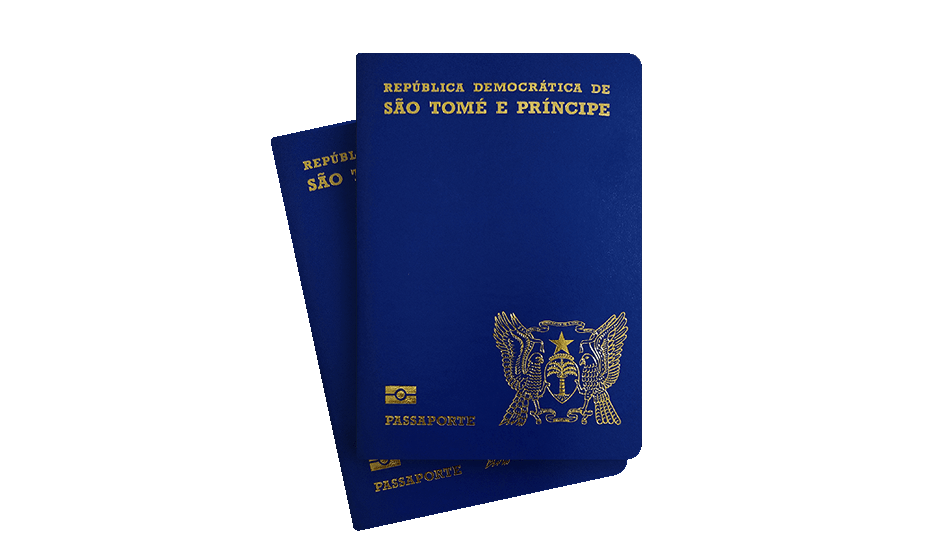Foreign applicants can get Argentina citizenship through the country’s immigration program if they meet the conditions for the period of stay (provided there are no grounds for their revocation) and other legal requirements. Argentina’s migration policy is quite lenient. Compared to many other countries, the period of naturalization is short, especially since there is also the right of soil. This allows the children of foreigners to immediately become citizens upon being born in Argentine territory. The procedure for granting citizenship is regulated by the Citizenship Law.
Obtaining an Argentine passport allows you to live in a country that ranks second in South America for economic indicators and is increasing its influence in the global market. With an Argentine identity card, visa-free travel is possible to many countries, including EU member states. It is also possible to become a Spanish resident under a simplified procedure.
Benefits of Argentine citizenship and passport
With an Argentine passport, a person can enjoy the following benefits:
- Visa-free travel to 162 countries, including all of the Latin America;
- The right to receive social benefits and other forms of support from the government;
- The right to take part in the political electoral process by running for office;
- The right to hold a public office position.
These are some of the key benefits of Argentine citizenship, especially for those seeking a second passport or broader travel opportunities.
A foreigner can also take an alternate route and organize a birth in Argentina, with citizenship for the child and themselves. More detailed information on this opportunity is available in .
Argentina citizenship requirements: what you need
A foreigner wondering how to become a citizen of Argentina must meet the following requirements:
- Be over 18 years of age;
- Have resided legally in the country for at least two years (unless there are grounds for the immediate granting of citizenship);
- Prove that they have the means to support themselves.
The residency requirement may be waived in the following circumstances:
- Service in the Argentine army or other military activities for the defense of the state;
- Starting a new industry or introducing a useful invention;
- Commercial activity or building a railroad in any of the provinces;
- Ownership of properties in existing or future national or provincial colonies;
- Marriage to a citizen of Argentina (also known as citizenship by marriage);
- Assistance in settling the national territories, whether within or outside the present boundaries;
- Work in education or any of the industries.
Ways to obtain Argentina citizenship
The most common ways to get citizenship in Argentina are by choice or through naturalization. However, the government values the contributions of migrants to economic and educational development. Therefore, those engaged in entrepreneurial activities, implementing innovative projects, or working in education may be eligible for citizenship without the standard residency requirements.
In 2025, Argentina announced plans to launch its first Citizenship by Investment (CBI) program. The initiative allows foreign nationals to obtain Argentine citizenship by investing a minimum of $500,000 in qualifying sectors such as technology, agribusiness, energy, or tourism. The program is expected to commence by late 2025 or early 2026. This marks a significant shift in Argentina’s immigration policy, offering a direct route to citizenship for investors.
Citizenship by birth or choice
The government recognizes the following persons as Argentine citizens, if they were:
- Born in the country, regardless of their origin or the nationality of their parents (except for the children of diplomats and foreign ministers).
- Born on the territory of Argentine embassies or aboard Argentine warships.
- Born to Argentine parents abroad who choose a passport of the Republic (citizenship by descent).
- Born in territories that were formerly part of the United Provinces of the Rio de la Plata before their liberation and who wish to be part of the Argentine nation.
- Born in neutral waters under the Argentine flag.
The first document that records the newborn’s nationality is the birth certificate. The clinic provides this directly. If desired, an internal passport in the form of an ID card or a foreign passport for traveling abroad can be issued immediately for the child.
Citizenship by naturalization
Those who have legally resided in Argentina for two years of residency or more and meet other requirements can be naturalized and obtain a passport. Initially, the foreigner must enter the country on a visa for one of the following reasons: education, work, or business. If there is such a border crossing regime with the state of the foreigner’s citizenship, that person residency permit in Argentina, depending on the visa type requested. Argentina has fairly simple requirements for naturalizing individuals. For example, the state does not require foreigners to integrate into local society by demonstrating knowledge of Spanish, Argentine law, culture, or history. Those with family ties to citizens are exempt from meeting the residence requirements. This exception applies to spouses of Argentine citizens and foreign parents whose child was born in Argentina.
Step-by-step: how to get Argentina citizenship
The process of obtaining Argentine citizenship involves the following steps: a foreigner enters the country with or without a visa, depending on their nationality; obtains temporary residence permit; fulfills the conditions for the residence period; and applies for citizenship. See below for a more detailed description of each step.
Registration of a residency permit
The permit is essential for maintaining legal residency in Argentina during the naturalization process. To begin the application process for a residence permit, create an account on the Department of Migration’s (DNM) website. Then, wait for instructions on further actions and a visit to the immigration office. The following documents must be attached to the dossier:
- Passport with a border crossing stamp;
- A certificate of good conduct from the country of origin or residence, available from the National Directorate of Migration at the time of request;
- A certificate verifying a place of residence in Argentina.
Based on the legal grounds for obtaining the permit, applicants may need to provide additional documents. For example, labor migrants must have a signed work contract and their employer’s CUIT number. Applicants for a residence permit for medical treatment must have a medical history signed by the director of the medical institution. A temporary residence permit is valid for two years and does not require renewal until you apply for citizenship.
Document collection and preparation
The dossier for obtaining citizenship by naturalization includes:
- A passport or other current identification;
- Birth certificate;
- A certificate verifying the accuracy of the personal data;
- A certificate verifying your place of residence;
- Proof of stable income (employment history, wage receipts).
The birth certificate and passport must be provided as copies and require international document legalization and/or an apostille.
Application for citizenship
Authorities responsible for receiving citizenship requests include the National Chamber of Federal Civil and Commercial Appeals in Buenos Aires and the National Civil and Federal Commercial Courts in regional areas. Applications for citizenship are submitted to these bodies. Within 90 days, judges make a decision by reviewing the file and requesting additional information about the applicant from intelligence, migration offices, or other institutions. The status of the citizenship case cannot be tracked. Once the request has been processed, a letter is sent to the foreigner. A decree is also published within two days in the local newspaper of the person’s province of residence. This final stage is crucial for anyone aiming to obtain Argentine citizenship through legal naturalization.
Argentina Citizenship: cost and timeline
Although the duration of the residence permit application process is not established by law, applicants can check the status of their case on the official website of the Ministry of Internal Affairs. During the naturalization process, foreigners won’t need to renew their resident cards or obtain an Argentine residence permit. Thus, the period for obtaining Argentine citizenship, considering the processing time for applications, is slightly more than two years.

Verifying the citizenship application is free, but the foreigner will incur expenses for document legalization and apostille, as well as legal fees if necessary. During naturalization, a fee of 26,300 pesos will be required. In general, Argentine citizenship is considered to be more expensive, given the cost of living in the country.
Altogether, the process of becoming an Argentine citizen usually takes just over two years.Note that the citizenship process includes application reviews, background checks, and court decisions.
How to obtain an Argentine passport
Two types of ID are issued to Argentines: a plastic ID card with a photo for use within the country and a passport for travel abroad, which looks like a book with a blue cover. These documents are available after you obtain citizenship in Argentina.
An internal passport can be requested from civil registry offices or the RENAPER Documentation Center by scheduling an appointment in advance. Applicants must provide all available birth documents to obtain an ID card. The procedure is free of charge.
Argentine passports are also issued at Renaper Documentation Centers or registries upon presentation of an up-to-date ID card. The application process takes 15 minutes, and the passport costs 4,000 pesos. For expedited passports, the state fee is 25,000 pesos. Passports are valid for 10 years for adults and 5 years for children under 18.
Argentina and dual citizenship explained
According to the law, citizens may hold more than one passport — Argentina allows dual citizenship. However, their status depends on a special agreement between Argentina and the other country. The Republic of Argentina has signed a treaty on the mutual recognition of rights and obligations of citizens with the governments of:
- Spain;
- Chile;
- Italy;
- Sweden;
- Norway;
- El Salvador;
- Colombia;
- Ecuador;
- Honduras;
- Nicaragua;
- Panama.
Accordingly, a person who has a passport from one of these countries and obtains an Argentinean passport becomes a dual citizen, holding Argentinian nationality alongside their original one. This means that both countries recognize the person’s identity documents, and the rule of reciprocal duties applies. If the applicant has a passport from another country, he/she does not need to renounce it when obtaining an Argentinean passport. In this case, it is a matter of acquiring a second citizenship. This means that in each state, the person is recognized only as a citizen of that particular country. Argentine authorities do not notify the applicant’s country of citizenship when granting status.
You can learn about other beneficial programs for obtaining a second passport by consulting . They will inform you which countries are optimal for obtaining the status in order to retain your current citizenship and secure the greatest number of privileges.
Why Argentinian citizenship may be refused or revoked
Reasons for rejecting an application for Argentine citizenship may include the following:
- Failure to meet one of the stipulated requirements;
- Submission of an incomplete dossier or false information about the applicant’s identity to mislead the authorities.
- The applicant has a criminal record.
- Threats to national security or public order by the applicant.
A citizen’s political rights may be suspended if he or she has naturalized in a foreign country, received posts or honors from a foreign government without the authorization of Parliament (the Argentine National Congress), committed fraud, or has a criminal record for offenses carrying dishonorable sentences or the death penalty. This information is transmitted to the National Registry of Persons and the National Electoral Chamber, which subsequently decides on revocation of the status. An illegal stay by a foreigner on the national territory threatens deportation and could complicate the future legal residency.
Not following the rules may result in rejection or loss of Argentine citizenship status. To avoid the risk of being denied citizenship and other negative consequences, it is important to study the current legislation and strictly adhere to its provisions.
Apply for Argentine citizenship: legal help and advice
ensures that applicants go through the procedure without delays or unnecessary personal time investment, all while keeping the risk of rejection to a minimum.
International law specialists help choose the optimal immigration program, explain the pros and cons of each program, and suggest the best options according to the applicant’s needs. Lawyers prepare documents and organize the procedure according to the requirements while also keeping track of changes in the migration legislation of the chosen destination country. Feedback from immigrants who have obtained the desired status abroad indicates that hiring a specialist is worth the cost. These individuals report that the assistance of a specialist saves time and improves the chances of a positive outcome.
If you’re unsure how to get Argentine citizenship, professional legal help can make the process clearer and faster. They also explain how to apply for Argentine citizenship correctly and ensure you legally stay in Argentina throughout the process.
















